Beat the cold in jjimjilbang heat
Unique experiences at Korea's most exotic saunas
By Lee Si-jinPublished : Feb. 11, 2023 - 16:06
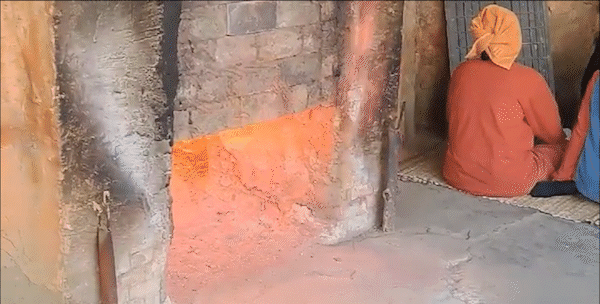
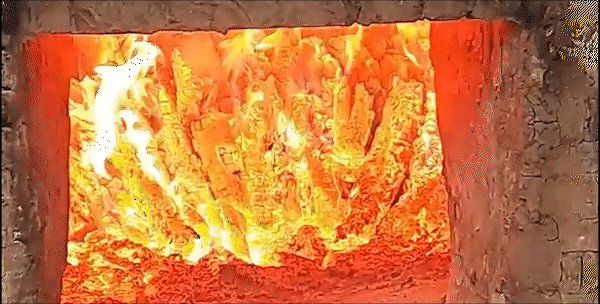
Outdoor activities -- skiing, snowboarding, sledding -- may be among common ways to enjoy the winter season. But, sometimes, laying on your back on a heated floor at a jjimjilbang is simply the better way to beat the bitter cold.
Jjimjilbang, a Korean-style sauna featuring two traditional heating systems -- “ondol” and “gama,” referring to a heated floor and kiln-shaped sauna rooms in Korean, respectively.
Diehard sauna lovers or those who know about jjimjilbang through Korean dramas may want to visit more unique jjimjilbang, challenging themselves to more exotic Korean sauna experience.
Relife Center
Some 160 kilometers east of Seoul in Gangwon Province, the highland county of Pyeongchang is home to the Relife Center. Even before stepping near the entrance of the jjimjilbang, the smell of burning wood welcomes visitors.
The sauna facility offers three unique jjimjil, or sauna, rooms: the pine needle room, tourmaline room and heated soil room.
After checking the reservation, visitors are required to change into jjimjilbang clothes -- loose-fitting, brown T-shirts and shorts. They can freely spend their time at the pine needle room, which has floors covered in pine needles, hand-picked from the nearby mountains by the 56-year-old Relife Center owner Kim Pan-sik.
Kim said that some prefer to stay in the higher temperature of the tourmaline room, which has walls plastered with the crystalline mineral and smooth tourmaline underfoot.
The soil room operates on a special basis at 10 a.m. and 3 p.m. every day, whereupon Kim covers visitors in the dark brown soil, warmed by biochemical reactions with enzymes. The effect is similar to a sand bath enjoyed seaside.
“The infrared radiation emitted from red clay, tourmaline and soil heated to a high temperature (approximately 70 degrees Celsius) passes 4 to 5 centimeters beneath the skin surface, facilitating cell activities and blood circulation. Higher body core temperature is good for the immune system. It is also thought to detoxify your body,” the owner told The Korea Herald.

Kim, who started the Relife Center as an overnight healing program that offers healthy food, light martial arts training as well as sauna services, is more than happy to see his visitors smile after staying a while.
“Relife Center is a lesser-known jjimjilbang place. I heard that the information is shared mostly by the elderly who visited our place before, saying that the sauna reduced muscle aches as well as pain in the back, shoulders and joints. But sauna lovers in their 20s and 30s visit as well," Kim said.
The owner added that the Relife Center does not have some of the more elaborate services and facilities available at fancy jjimjilbang in cities. But it is surrounded by the Odaesan cluster of mountains, offering fresh air with scenic views.
Entrance is 50,000 won ($40), and the jjimjil program takes up to 2 1/2 hours, according to Kim.
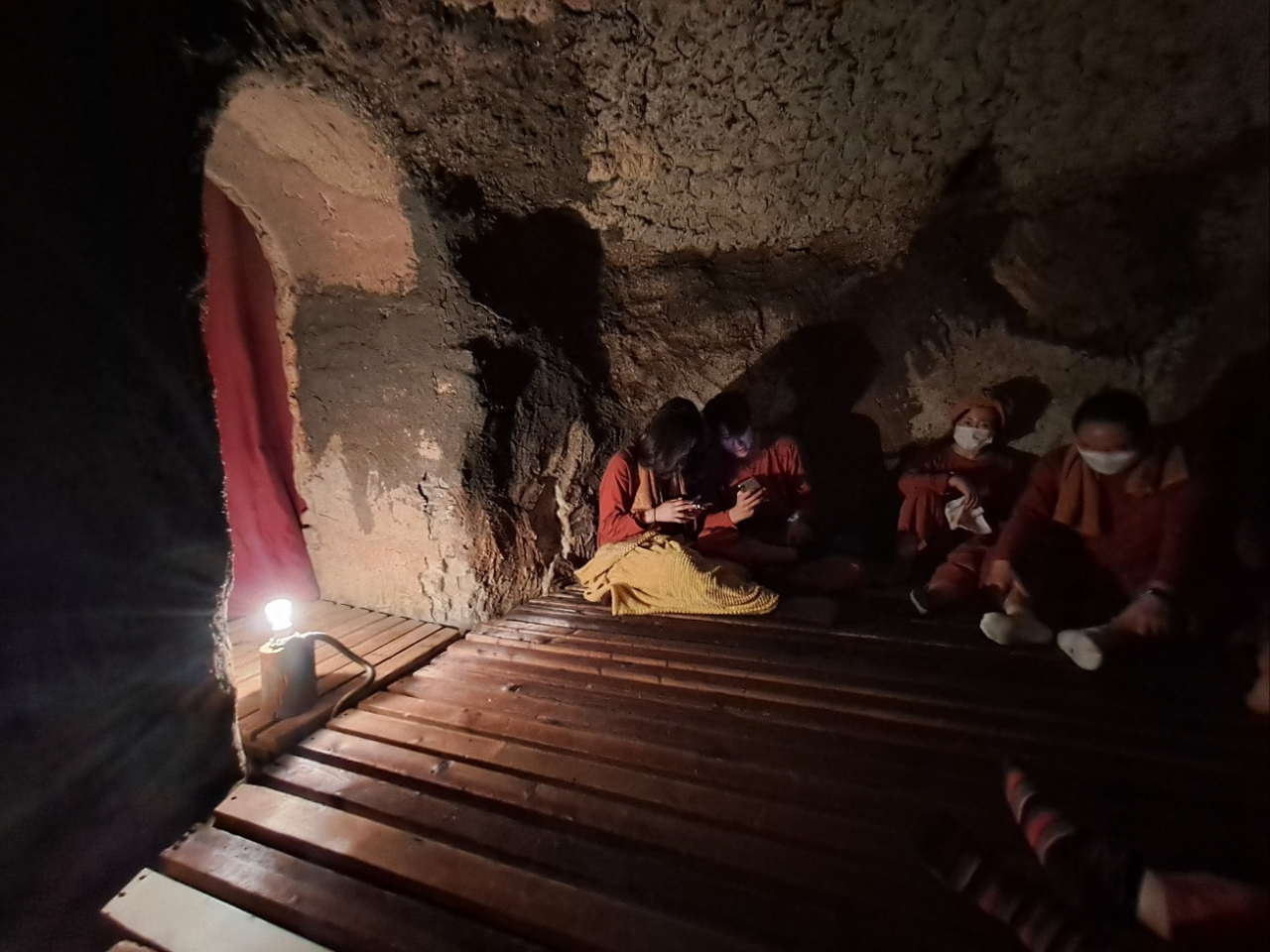
Jangheung Charcoal Kiln
Just a 50- to 60-minute drive from Seoul, Jangheung Charcoal Kiln is one of the more popular jjimjilbang in Gyeonggi Province.
At first glance, Jangheung Charcoal Kiln is not much different from other jjimjilbang.
After taking off their shoes at the entrance, visitors pay 15,000 won for adults and 11,000 won for children, receive a key for the locker and meet up with again in the common space in the jjimjilbang attire.
One can freely move between five kilns differentiated by temperature -- slightly warm, warm, hot, boiling hot and scorching hot -- hang out together in an open space, sweat it out and unwind at a relaxing pace.
But what makes this jjimjilbang special are the open kilns and barbecue restaurant.
A charcoal kiln near the jjimjilbang’s entrance is opened to visitors, radiating intense heat until 11 p.m. Many people sit around the kiln to relieve muscle aches and back pains.
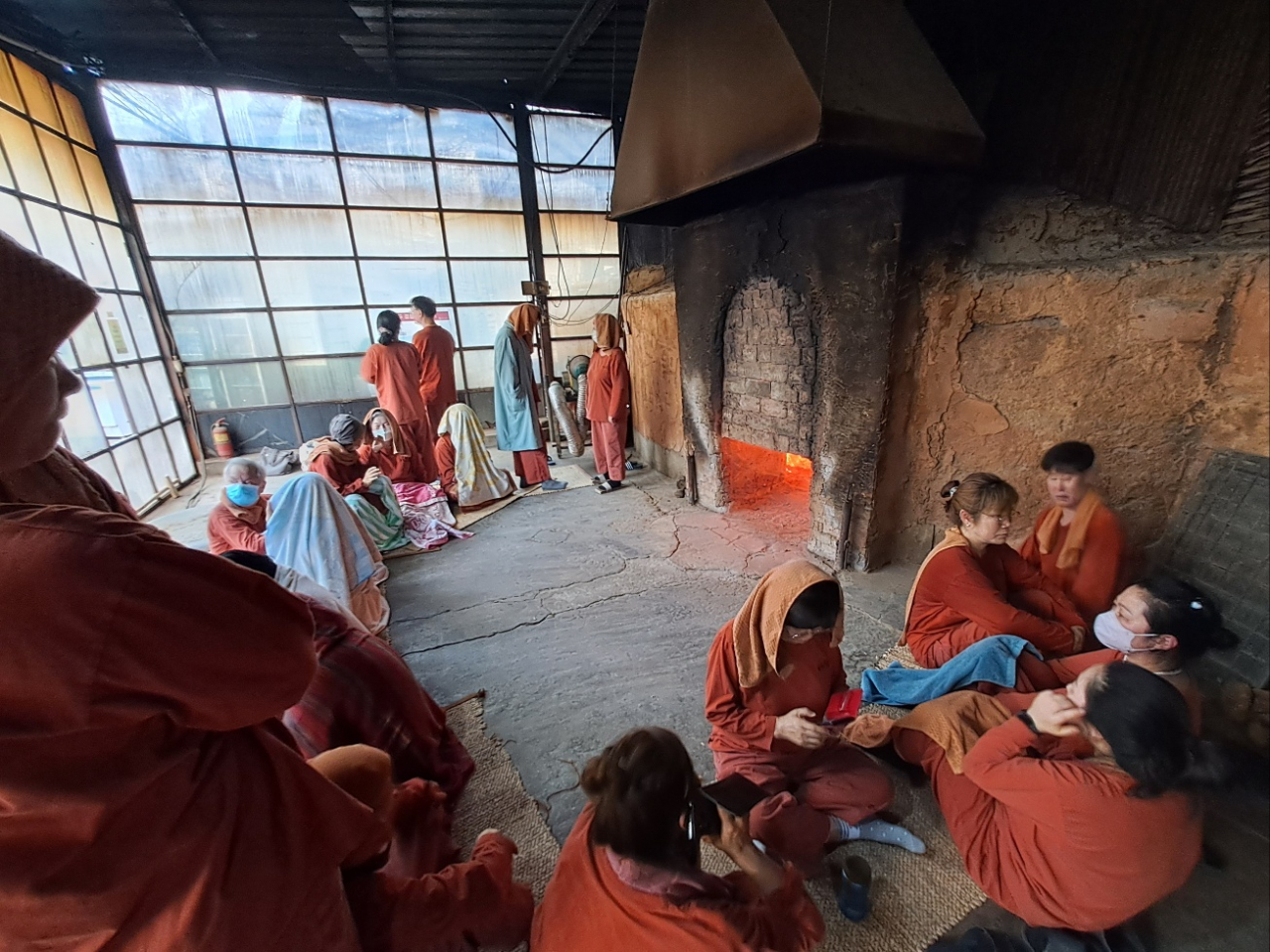
“After witnessing the burning flame inside the kiln, many people nicknamed the blaze ‘hell fire,’” a 62-year-old housewife, surnamed Park, who was enjoying the sauna told The Korea Herald on Monday.
Jangheung Charcoal Kiln recommends visitors cover their bodies and faces with large bath towels offered by the jjimjilbang when they walk into the two hottest rooms to prevent possible burns. They are also required to stand in the room with clogs on their feet.
If you want to try something different from kiln-cooked eggs and sikhye, a traditional Korean drink made with rice and malt, both of which are iconic jjimjilbang refreshments, bring something different yourself -- anything from meat and clams to sweet potatoes.
Visitors can cook their meal with charcoal taken out fresh from the kilns for free to satisfy their appetite after sweating the toxins out in the gama.
“I can feel my stress and worries just evaporate in the heat when I stay in a hot gama. When I feel bad, I come to jjimjilbang to improve my mood,” said Park Ju-hyun, a 22-year-old student living in Uijeongbu, Gyeonggi Province.
Jangheung Charcoal Kiln is open 24 hours, though the kilns are closed from 7 a.m. to 9 a.m. for cleaning.













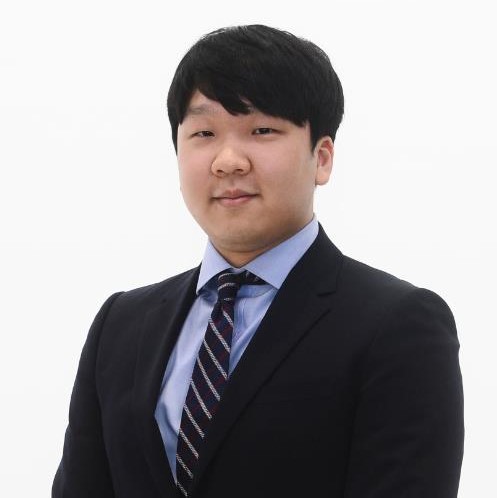





![[Today’s K-pop] Treasure to publish magazine for debut anniversary](http://res.heraldm.com/phpwas/restmb_idxmake.php?idx=642&simg=/content/image/2024/07/26/20240726050551_0.jpg&u=)